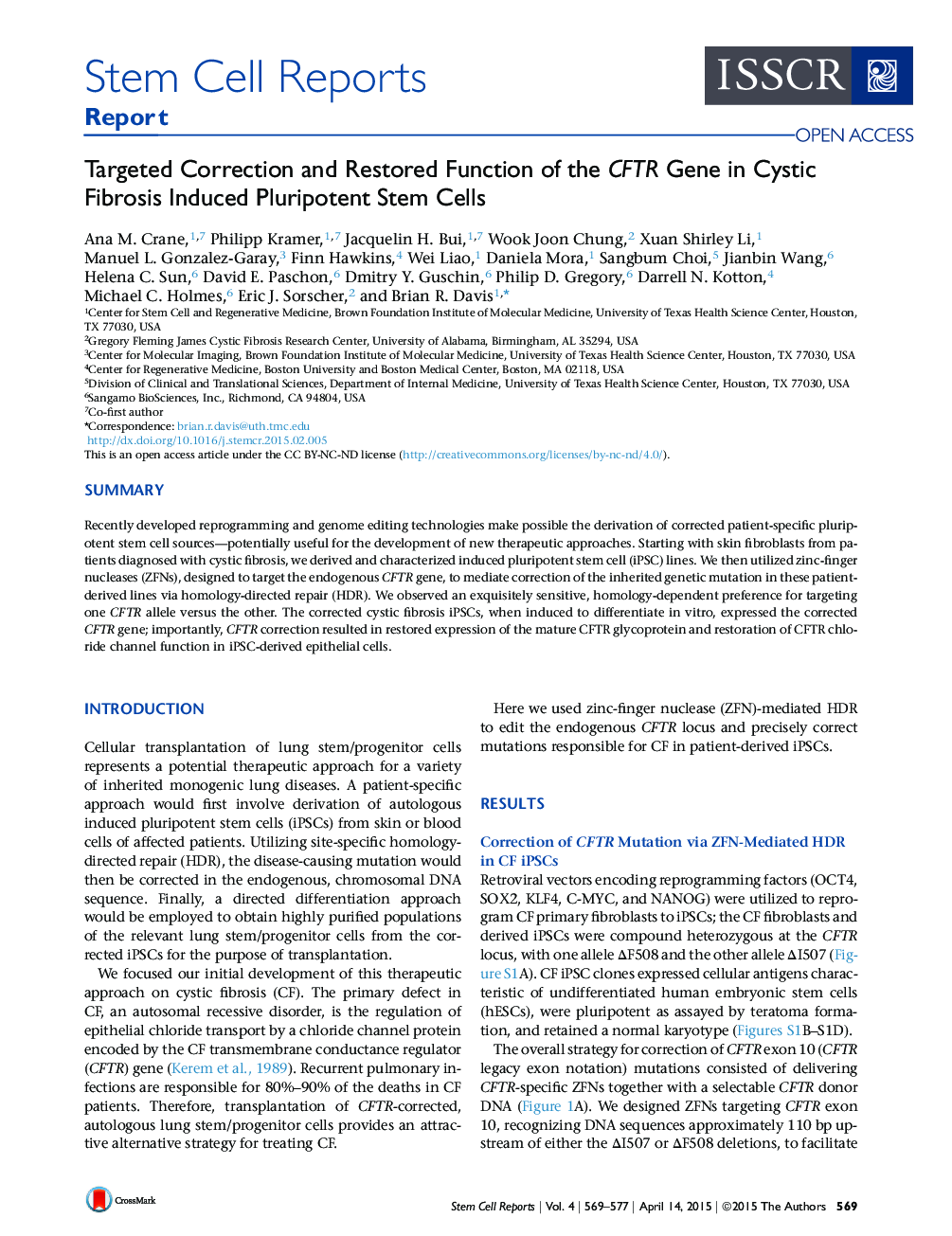| Article ID | Journal | Published Year | Pages | File Type |
|---|---|---|---|---|
| 2093608 | Stem Cell Reports | 2015 | 9 Pages |
•We corrected the mutant CFTR gene in cystic fibrosis iPSCs•Correction restored protein expression and function in iPSC-derived epithelial cells•We observed an exquisitely sensitive, homology-dependent, allele-preferred targeting
SummaryRecently developed reprogramming and genome editing technologies make possible the derivation of corrected patient-specific pluripotent stem cell sources—potentially useful for the development of new therapeutic approaches. Starting with skin fibroblasts from patients diagnosed with cystic fibrosis, we derived and characterized induced pluripotent stem cell (iPSC) lines. We then utilized zinc-finger nucleases (ZFNs), designed to target the endogenous CFTR gene, to mediate correction of the inherited genetic mutation in these patient-derived lines via homology-directed repair (HDR). We observed an exquisitely sensitive, homology-dependent preference for targeting one CFTR allele versus the other. The corrected cystic fibrosis iPSCs, when induced to differentiate in vitro, expressed the corrected CFTR gene; importantly, CFTR correction resulted in restored expression of the mature CFTR glycoprotein and restoration of CFTR chloride channel function in iPSC-derived epithelial cells.
